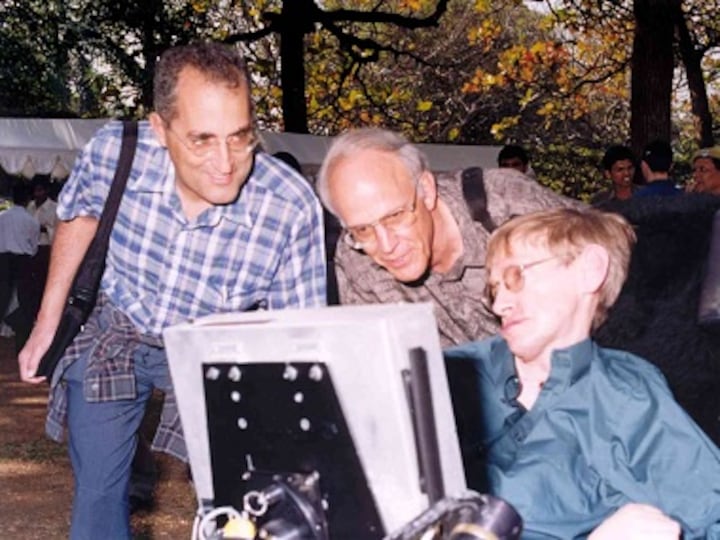Cosmology
Recent Highlights
All Stories for Cosmology

Stephen Hawking's death marks not just loss of a great physicist, but also a passionate science communicator
Arnab Bhattacharya •A TIFR scientist recounts the experience of watching Stephen Hawking speak to a packed audience during an international conference in India | #FirstCulture

The Stephen Hawking I knew: Physicist unravelled mysteries of the cosmos that even Einstein overlooked
Pankaj S Joshi •Stephen Hawking's greatest contribution was on cosmology and black hole physics.

Stephen Hawking Dead; updates: Physicist had warned that humans would have to leave Earth in 100 years
Fp Staff •Physicist and cosmologist Stephen Hawking, known for his work on black holes and gravity, has died aged 76, a spokesperson for the family has said.

Astronomers detect for first time light coming from the very first stars of our universe
Indiascience •First stars rich in hydrogen were massive, tens and thousands time massive than our Sun. Massive stars live fast and burn out fast.

Colliding black holes could be lurking at the outskirts of spiral galaxies like the Milky Way
Ians •The outskirts of spiral galaxies like our own could be crowded with colliding black holes of massive proportions claims the study.

NASA astronomers figure out the intricate dance of exoplanets in the TRAPPIST-1 system
Tech2 News Staff •The planets are locked in an orbital resonance, each gravitationally tugging the next planet, and keeping it in place.
Waterloo researchers capture first ever image of dark matter web connecting galaxies
Tech2 News Staff •Dark matter does not reflect or absorb light, does not shine, and has historically been undetectable.

Nasa to study the solar system and develop methods for manned missions to celestial bodies
Ians •Nasa has added four new teams to study the Moon, near-Earth asteroids and other components of the solar system.

On Einstein's 138th birthday, we list out five modern day titans of science
Tech2 News Staff •Here are five modern geniuses who can be considered as the Einsteins of today.
Biggest galaxies in the universe were formed in cosmic oceans of cold gas
Fp Archives •Until now scientists believed that "supergalaxies" formed from smaller galaxies that grow closer due to gravitational attraction.




